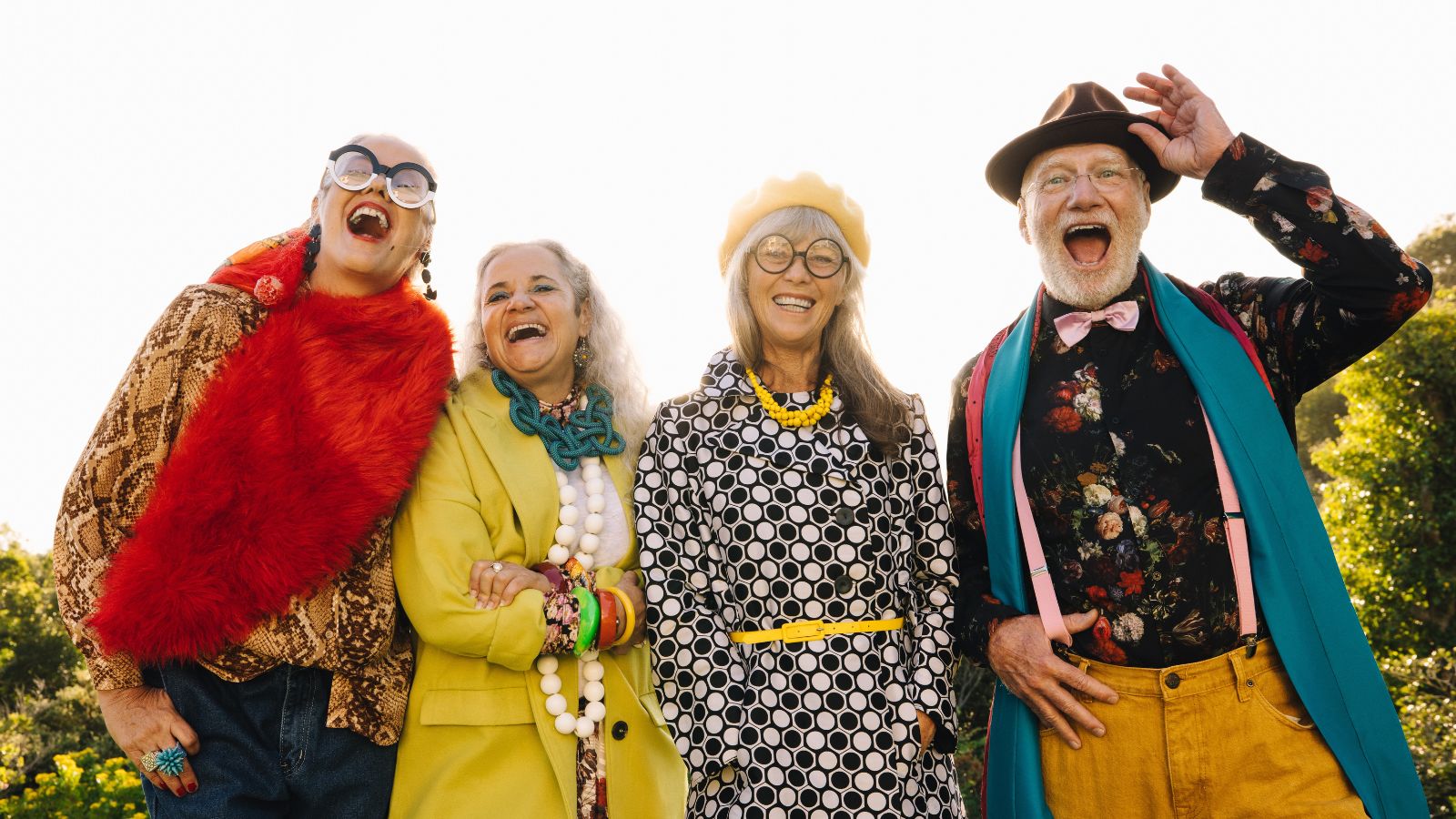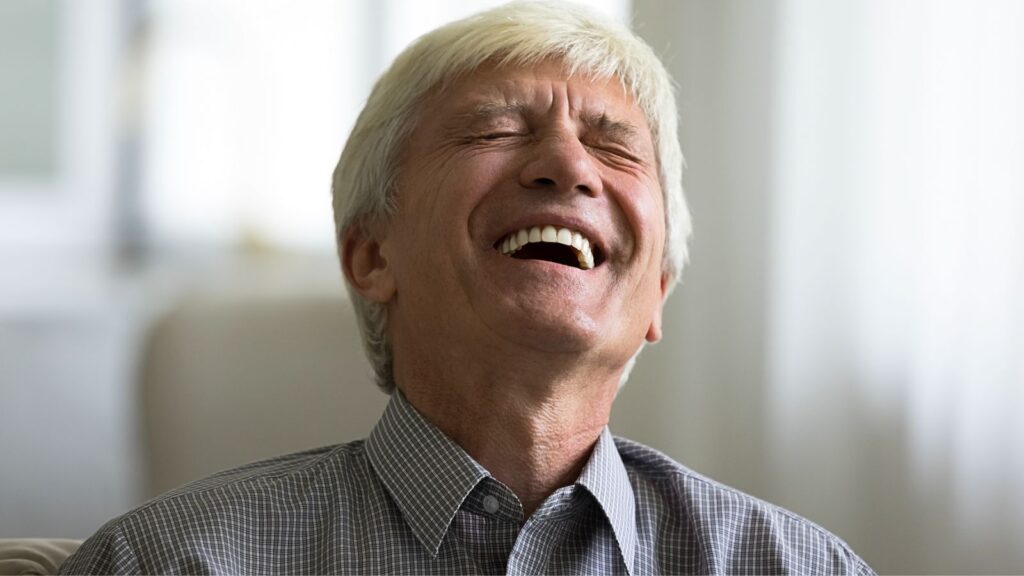The 1960s were a transformative decade, marked by political, cultural, and social changes that have left a lasting impact, and along with these shifts came changes in language and slang. If you want to brush up on the lingo from that era, this article provides a list of phrases that will have you speaking like you’re from the ‘60s.
‘Can you dig it?’

If you understood something or found value in something, people would ask you if you could ‘dig it.’ This phrase was commonly used during the 1960s to convey a desire for understanding and connection.
‘Right on’

‘Right on’ was expressed as an agreement of solidarity and could be interpreted as saying ‘you’re right’ or ‘exactly.’ It was used extensively in the 1960s, but you may still find that people use it today to express or affirm something.
‘Hip’

This term is still used today by many when they want to express something fashionable. It means something is cool, and someone who is dressed stylishly or keeps up with the trends of any current social happenings.
‘Square’

When something is ‘square’, it’s the opposite of ‘hip’. It denotes when something isn’t trendy but rather on the conservative side. Those who didn’t comprehend or follow trends or the shifts that society was going through were considered ‘square.’
‘Far out’

Far out, also interpreted as ‘incredible,’ is an expression used in the 1960s to denote something splendid. It’s a form of approval if someone agrees with it. It’s like saying something is ‘awesome’. It came about during the era of space exploration.
‘Groovy’

The word ‘groovy’ means ‘cool.’ No ‘60s phrasebook can be complete without this phrase. It came about as an influence on popular, or pop, culture. One prominent example is Austin Powers, and its affinity is mainly used in music nowadays.
‘Peaceful vibes’

This phrase came about as a form of either a greeting or a farewell and is associated with the longing for peace in society. It was coined during the Vietnam War by those who chose peace over conflict, and it seems to have stuck in the 21st century.
‘Outta sight’

When something was surprising, hard to believe, or astonishing, people often used the term ‘outta sight,’ similar to ‘far out.’ It was also used to express admiration for something, so it can be used as a positive phrase in any context.
‘The man’

People in the 1960s also used the phrase ‘the man,’ especially kids in groups, when discussing authority figures. It’s a word that has connotations associated with dissatisfaction or when you don’t trust something, like the establishment and everything it embodies.
‘Flower power’

A very popular phrase that no ‘60s slang list would be complete without. It was associated with the hippie culture of the ‘60s, as mentioned in this Mental Floss article: 20 Bits of Groovy ’60s Slang, which says it is related to ‘the flowers the iconoclasts often wore to demonstrate their pacifism.’ It represents non-violence and promotes peace and love.
‘Psychedelic’

When someone in the ‘60s said something was ‘psychedelic,’ it was an indication that something was mind-altering. This was then used as a holistic term for anything that blew your mind or was very colorful.
‘Cool cat’

A “cool cat” was someone who radiated coolness. This term was commonly used to define people who would naturally possess the characteristics of being charismatic and stylish, such as artists, musicians, or actors.
‘Fry / Fried’

This phrase has been explained well on the GMK website, which mentions the word ‘fry’ to mean being ‘fried.’ Similar to when you take psychedelics and the after-effects of them, this means when someone has been smoking too much cannabis or taking hallucinogens such as ‘mushrooms’ that were very popular back in the ‘60s. The next day, when you feel groggy or worn out, you’re ‘fried’!
‘Crash pad’

When someone in the ‘60s spoke of places they would hang out or sleep, like their home or friends’ houses, they would refer to it as a ‘crash’ or ‘crash pad’. It was commonly used among the hippie generation and young adults. It personified the spirit of sharing a living space.
‘Bread’

In the 1960s, “bread” served as slang for cash or money. This term personified a laid-back era and was just an inventive way to refer to how much money something cost or how much cash you had in your pocket or wallet.
‘Beatnik’

Individuals in the ‘60s who were associated with the Beat Generation were considered “beatniks.” History describes them as a group recognized by their diverse forms of expression, such as bohemian, and often Eastern religious values, many of which were rejected and opposed by others.
‘Daddy-O’

When you’re fond of someone and you want to express affection casually, you can call someone ‘Daddy-O.’ It could also be used to describe someone who is casually dressed, which denotes a very laid-back characteristic of someone.
‘Lay it on me’

Telling someone to ‘lay it on me’ means asking them to give you all the information about a certain topic of discussion. It could be anything from an insight to asking someone about their honest opinion. It opens the way for candidness in conversations.
‘What’s your bag?’

Asking “What’s your bag?” was a way of inquiring about someone’s interests or hobbies. It aimed to understand their preferences and identities.
‘Make love, not war’

This known slogan captured the pro-love sentiment of the 1960s. It was widely used to advocate for peace and challenge established norms opposing the Vietnam War.







